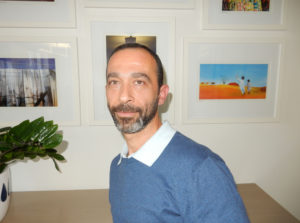Minorities at risk in conflicts
Iraqi refugee Sherak Dawood’s final days in his homeland were brutally instructive.
A member of the Christian Assyrian minority group, he was kidnapped by an Islamist extremist group, beaten and given an invidious set of options: leave, convert to Islam or be killed.
Life had never been easy for Sherak and his family but he had managed to study, work hard and had a career as an engineer. He and his wife and three children had survived Saddam Hussein and the US invasion and were looking to a brighter future.
But that all changed one day last year when a black four wheel drive blocked the path of the taxi he was in on the way home from work in Baghdad.
“Some men forced me out of the taxi and put a black bag over my head,” Sherak said this week as he recounted his ordeal.
“I asked them why they were taking me but they told me to shut up or they’d kill me,” he said.
“We drove for a long time and eventually we stopped.
“They took the bag off my head and there was a big man with a beard. He said ‘you are a Christian, you have two choices – leave or we’ll kill you and we’ll torture your family,” Sherak said.
 Sherak was beaten again and his teeth were broken before he was thrown out of the vehicle on a highway outside Baghdad.
Sherak was beaten again and his teeth were broken before he was thrown out of the vehicle on a highway outside Baghdad.
“As soon as I recovered, I took my family out of Iraq,” Sherak said.
The Dawood family spent ten months as refugees in Jordan and life there was not easy.
“It was difficult. I could not work there, the law did not really protect us there. It was impossible to predict what would happen into the future,” Sherak said.
Eventually, the family was able to come to Australia through the Community Support Program – a scheme that allows families, communities or church groups to sponsor people on humanitarian refugee visas.
The Assyrian Council of Victoria and Sherak’s cousin, who lives in Melbourne, sponsored the family and they arrived a few months ago.
Sherak says that life in Iraq has never been easy for Christians but now Christians who are educated professionals or running businesses are being targeted by Islamic extremists.
“There’s never really been peace in Iraq since the 1920s and as a Christian I have always had a sense of fear – and recently this has gotten worse,” he said.
“I never knew whether I would be kidnapped or killed because of my religion,” Sherak said.
“There is always pressure on Christians in different ways – it can be hard to get a job or to do business if you are Christian,” he said.
Now settled in Melbourne’s northern suburb, Sherak says life is “perfect”.
“There are rules here and everyone’s rights are protected by the law. It doesn’t matter who you are or what your position or religion is, you are equal under the law,” he said.
“In Australia we are free. We can pray, we can spend happy times as a family, we feel that our lives have meaning, as a family we are very happy,” Sherak said.
He said he planned to improve his English and look for a job.
“I want to find a suitable job as an engineer soon as possible,” Sherak said.
“There’s no time to waste. I want to give back to Australia because it has offered me and my family a safe place to build a future,” he said.
Sherak’s wife Arena has a master’s degree in psychology and is a qualified psychology teacher. She is also hoping to rebuild her career.
This week’s federal budget saw the Community Support Program rise to 1000 places replacing a pilot program that offered just 500 places.
The program allows individuals, groups and now businesses to sponsor humanitarian entrants to Australia.
In return, sponsors will be required to support humanitarian entrants during their first year in Australia, including by funding their visa application, airfares and settlement services.
This move will save the federal government $26.9 million over four years but refugee advocacy groups say the places should be offered in addition to Australia’s humanitarian intake.
Laurie Nowell
AMES Australia Senior Journalist












